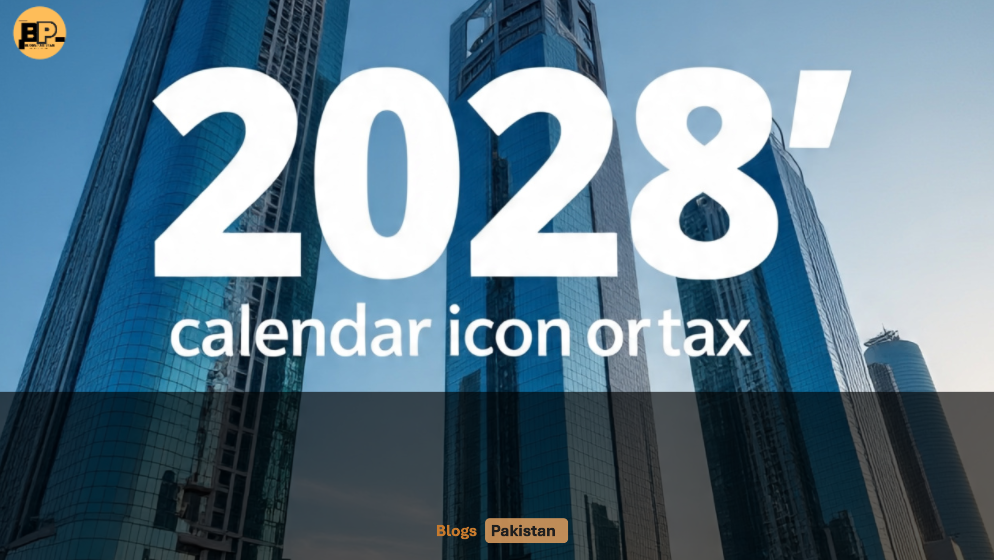Oman In a region known for glittering skyscrapers, oil-backed economies, and zero income taxes, one country has officially decided to shake things up. Brace yourselves: Oman is about to become the first Gulf state to say yes to personal income tax—but before you panic, take a breath (and maybe count your riyals).
While your uncle in Dubai is still flexing about the tax-free life, Oman is planning a new chapter—a modest 5% tax for high-income individuals, starting in 2028. Sounds serious? It is. But it’s also a well-calculated move that’s stirring conversations from Muscat to Mumbai and Karachi.
Let’s break down what this bold decision means, why it matters, and whether the rest of the Gulf might soon follow suit.
What Exactly Is Oman Doing?
Oman’s Ministry of Finance has confirmed that a personal income tax will be introduced under the new Personal Income Tax Law, kicking off in early 2028. This isn’t your average flat-rate, everyone-pays deal. Nope, Oman’s playing it smart and targeting only those earning above 42,000 Omani Riyals annually—roughly Rs30.97 million in Pakistani or Indian currency (give or take a few currency fluctuations).
That means 99% of Oman’s population is in the clear. So unless you’re rolling in millions, this probably won’t even affect you. But for the top earners—Omani citizens, expats, and high-flying professionals alike—this marks a big shift.
Gulf States and Taxes: A Brief Love-Hate History
Traditionally, Gulf countries have been paradise zones for the tax-averse. No income tax, cheap fuel, and glamorous malls that give your wallet more freedom than sense. However, economic reality is catching up.
Many Gulf nations have already added:
- VAT (Value-Added Tax) – Think of it as a little nudge on every purchase.
- Corporate income tax – Your business pays, even if you don’t.
- Excise duties – Goodbye cheap sugary drinks and tobacco.
But personal income tax has long been a red line. Until now.
Oman just took the leap—slow, calculated, and relatively gentle at 5%. But it’s a leap nonetheless.
Why Now? Why Oman?
Great question. Oman isn’t doing this on a whim.
This is all part of a broader strategy—Oman Vision 2040—which aims to:
- Diversify the economy away from oil
- Create sustainable, long-term revenue streams
- Improve social infrastructure like health and education
- Appease the IMF, which has gently (or not-so-gently) encouraged Gulf nations to modernize their tax systems
As Karima Mubarak Al Saadi, Director of the Personal Income Tax Project, explained, Oman has already built the infrastructure needed for this shift. The policy has been years in the making, backed by thorough studies and socially sensitive exemptions.
So no, this isn’t about squeezing the public. It’s about building resilience in the post-oil era.
Not Just for Omanis—Expats, Read This Too
According to Thomas Vanhee, founding partner of Aurifer Middle East Tax Consultancy, this law applies to everyone—Omanis, expats, unicorn founders, and probably even that one guy who insists on working from a yacht.
This inclusive approach mirrors international tax norms, and sends a signal that Oman is ready to play by global rules—at its own pace.
What Are the Exemptions?
To keep things fair and human, Oman’s new law includes a generous list of deductions and exemptions, covering:
- Education costs
- Healthcare expenses
- Primary housing
- Charitable donations and zakat
- Inheritance
This means that even if you’re above the income threshold, your actual tax bill could be significantly reduced based on these everyday life expenses. It’s not a tax hammer—it’s a carefully carved scalpel.
How Are People Reacting?
Reactions are mixed, naturally.
- High-income professionals are double-checking their spreadsheets.
- Businesses are reviewing employment contracts.
- Economists are praising the progressive rate and thoughtful implementation.
- And average citizens? Mostly shrugging and scrolling through cricket scores—because for the vast majority, this won’t even apply.
What About the Rest of the Gulf?
Now that Oman has cracked the door open, other Gulf Cooperation Council (GCC) members might be tempted to peek in. The UAE, Qatar, and Saudi Arabia have all taken baby steps toward taxation in recent years.
But introducing income tax is a sensitive affair. The “tax-free” promise has long been a draw for foreign talent and investment. So while Oman may be first, others will likely watch closely before taking the plunge.
Why This Matters to Pakistanis and Indians
If you’re from Pakistan or India and living or working in the Gulf, this news should be on your radar. Here’s why:
- High-income earners working in Oman will need to prepare and possibly re-evaluate their financial plans.
- If this trend spreads to other Gulf countries, similar rules could follow elsewhere.
- It reflects a global shift toward more inclusive and balanced economies—a model your home countries are also pursuing.
- It could indirectly affect remittance flows, spending habits, and investment decisions back home.
So, Is This the End of the Tax-Free Dream?
Not quite. Oman’s move is a smart, soft entry into a new era, not a tax apocalypse.
At 5%, with plenty of exemptions, and a long run-up time until 2028, this is more of a gentle nudge than a fiscal earthquake. But it does signal a new era for Gulf economies—one that blends tradition with reform.
And who knows? By 2040, we might be laughing about the days when personal income tax in the Gulf was considered a radical idea.










